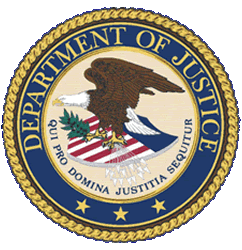 The contentious upcoming criminal trial of former New York City Police Commissioner Bernard Kerik represents an increasingly common willingness among federal and state prosecutors to use criminal “honest services” and corruption statutes to address alleged “pay to play” violations. This case, and others like it, represent the culmination of a conscious decision among the prosecutors and agents of the Department of Justice Public Integrity Section to use undercover investigations to investigate and prosecute pay to play violations actively. From the looks of things, these criminal probes are having an impact.
The contentious upcoming criminal trial of former New York City Police Commissioner Bernard Kerik represents an increasingly common willingness among federal and state prosecutors to use criminal “honest services” and corruption statutes to address alleged “pay to play” violations. This case, and others like it, represent the culmination of a conscious decision among the prosecutors and agents of the Department of Justice Public Integrity Section to use undercover investigations to investigate and prosecute pay to play violations actively. From the looks of things, these criminal probes are having an impact.
In a June 23, 2009 press release announcing the sentencing of former DC Department of Consumer and Regulatory Affairs Contact Representative Ikela M. Dean, the Department of Justice reaffirmed its commitment that alleged violations of public trust will be punished and that “The Department of Justice is committed to aggressively ferreting out this type of corruption and holding those accountable for their actions.” Recent undercover investigations by the Federal Bureau of Investigations have highlighted the seriousness with which the Department takes this mission statement.
The pervasive use of federal undercover operations to ferret out and prosecute pay to play violations can be gleaned from recent indictments and Justice Department press announcements. The indictment against Mr. Kerik reveals a complex and ongoing undercover investigation to support allegations that he requested and received benefits from a series of unnamed construction and waste management companies while simultaneously assisting the companies to receive municipal permits and business.
Trial in the (first of three) Kerik matters is currently scheduled to commence October 13. That trial, along with the upcoming corruption trials of Bergen County, New Jersey Democratic Chairman Joseph Ferriero and the ubiquitous former Illinois Governor Rod Blagojevich, promise to highlight the aggression with which these cases are investigated and prosecuted. Other, similar, investigations and indictments have recently been announced in East St. Louis, Miami, and the District of Columbia.
Clearly, increased criminal prosecution – and resulting public outrage – are having a legislative effect. On September 9, 2009, after a very high profile federal raid resulted in 44 arrests in New Jersey, the Jersey City Council suddenly reversed past opposition to pay to play legislation to pass an ordinance restricting developers from making political contributions in exchange for city redevelopment approvals. Ironically, among those voting for the new ordinance was City Council president Mariano Vega who was among those arrested and charged with taking cash from a developer seeking to do business in Jersey City.

